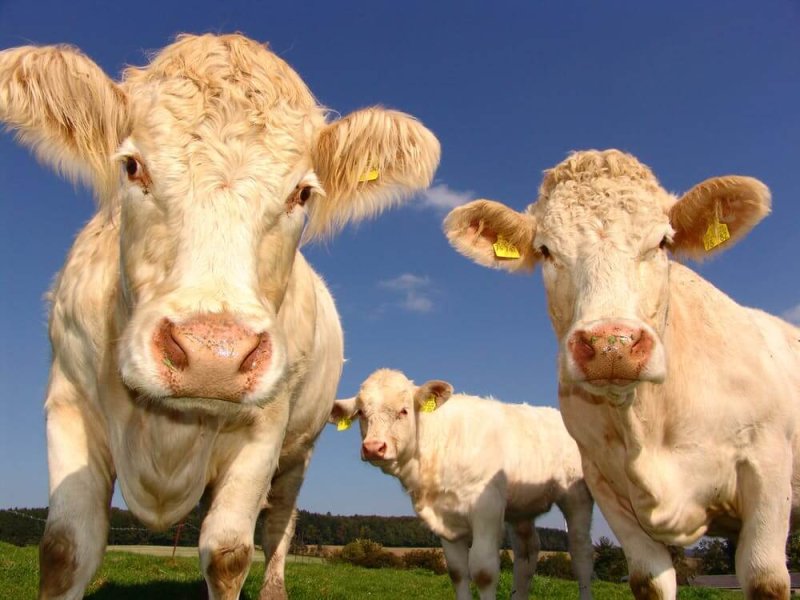From low-emission cows to robotic soil management, the farming industry will have to explore new approaches in the wake of a UN warning that the world needs to cut meat consumption or face worsening climate chaos, [said]Guy Smith, vice-president of the National Farmers’ Union (NFU), [as] policymakers began to discuss how Britain can address the challenges posed by the recent global warming report by the UN’s Intergovernmental Panel on Climate Change (IPCC).
…
Among the possible tech fixes he mentioned were greater uses of satellites and robotics to increase the amount of carbon-absorbing organic matter in the soil and breeding new livestock that emit less methane …. If the low-emission cows could be bred with each other, this could bring down these emissions, they say. Researchers in other countries are also looking at changing feed to make cattle less gaseous.
Cow farts are a major source of greenhouse gas, but researchers – who collect the gases in bags fitted to cows – have found there is considerable natural variation from animal to animal. If the low-emission cows could be bred with each other, this could bring down these emissions, they say. Researchers in other countries are also looking at changing feed to make cattle less gaseous.
Read full, original article: Low-emission cows: farming responds to climate warning































